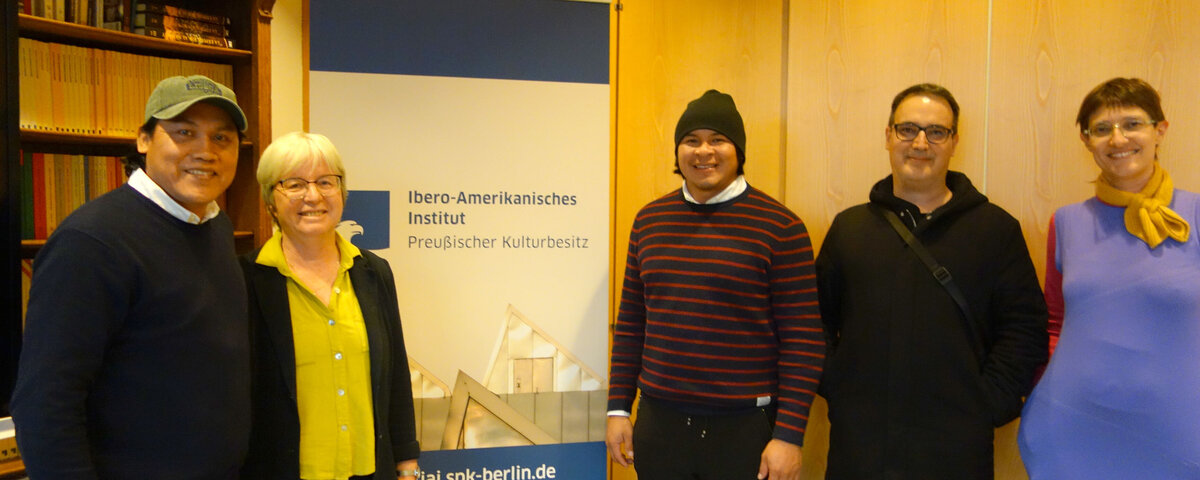On March 10, 2025, Kanawayuri Marcello Kamayurá and Auakamu Kamayurá visited the Ibero-Amerikanisches Institut (IAI). The Kamayurá are a relatively small indigenous group living in the central Brazilian Amazon region of the Rio Xingu. As part of the Brazilian project “Arquivo Kamayurá”, they visited and documented ethnographic and historical objects of the Kamayurá culture in European museums. They were accompanied by the social and cultural anthropologists Rodrigo Lacerda (Universidade Nova de Lisboa) and Luísa Valentini (Universidade de São Paulo). They also spent several days at the Ethnologisches Museum der Stiftung Preußischer Kulturbesitz (Ethnological Museum of the Prussian Cultural Heritage Foundation) in Berlin, as it contains objects that are very important to the Kamayurá, such as masks, feather ornaments and traditional musical instruments.
The Ibero-Amerikanisches Institut has complementary holdings to the Amazonian collections of the Ethnologisches Museum. These include a wide variety of materials such as books, magazines, newspaper articles, maps, sound recordings, photographs, slides, field diaries, sketches and drawings. Of particular note are the photographs of the first Xingu expedition (1884-1885) by Karl von den Steinen and the diary of Paul Ehrenreich, who took part in his second Xingu expedition (1887-1888). The diary and its transcription as well as other materials by Paul Ehrenreich are available in the multilingual Digital Collections of the Ibero-Amerikanisches Institut.
The Kamayurá delegation was presented with a Portuguese-language overview of the IAI’s holdings on Amazonia, in particular the Rio Xingu region, with research tips and information on the accessibility of the materials in the online library catalog, the special collections and the digital collections of the Ibero-Amerikanisches Institut.
The visit by Kanawayuri Marcello Kamayurá, Auakamu Kamayurá, Rodrigo Lacerda and Luísa Valentini has made it clear how important it is to network the collections from and about Amazonia at the Ibero-Amerikanisches Institut and the Ethnologisches Museum even more closely. Like other visits to the IAI by representatives of indigenous communities, it also illustrated the importance of facilitating access to collections in all their diversity and not to focus solely on objects in museums for processes of recirculation.
